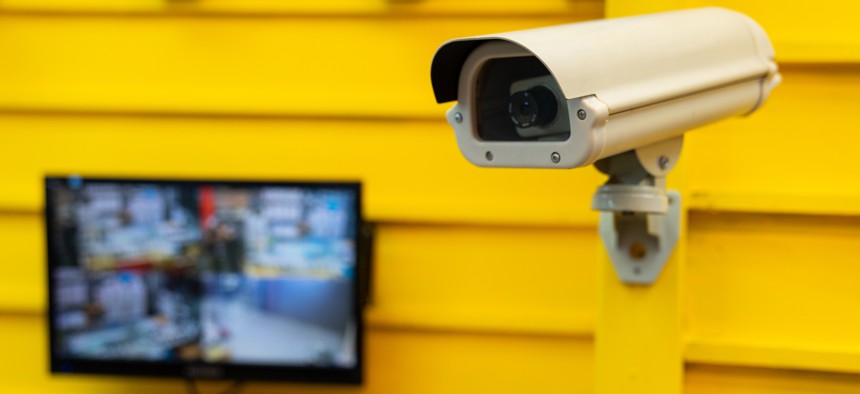San Francisco police to tap private surveillance cameras

CCTV camera in an office building. krisanapong detraphiphat/Getty Images

Connecting state and local government leaders
A new rule allows the police to request access to footage from non-city-owned cameras for investigations and to monitor events with public safety concerns.
The San Francisco Board of Supervisors has approved a controversial rule that would allow the San Francisco Police Department (SFPD) to temporarily access cameras not owned by the city for real-time surveillance and investigations.
The rule means that officers could request access to surveillance cameras and camera networks owned by non-city entities to temporarily monitor real-time activity for no more than 24 hours, including events where there are public safety concerns. The department could also request historical footage for criminal investigations or for internal investigations over officer misconduct.
“Our residents and small businesses want us focused on keeping San Francisco safe for everyone who lives and works in the City,” Mayor London Breed said in a statement. “This is a sensible policy that balances the need to give our police officers another tool to address significant public safety challenges and to hold those who break the law accountable.”
While officers would need the camera owner’s permission to access the video, they would not require a warrant under the rule, which is set to sunset 15 months after it goes into effect and be subject to further review at that time. SFPD is also required to submit an annual surveillance report.
Members of the San Francisco Police Commission said in a letter to the Board of Supervisors that they had “significant concerns” about the policy, which they warned would have “massive ramifications” for the city, including on civil liberties, constitutional rights and privacy. They said it represents a “significant shift” in how SFPD uses surveillance technology.
The American Civil Liberties Union’s Northern California branch added in a series of tweets that it was “very troubled” by the rule.
In a letter responding to opponents, San Francisco Police Chief William Scott rejected claims that the SFPD is promoting “mass surveillance” and said the department has routinely been “utilizing video footage and systems via consent or warrant for over 20 years” to help with its investigations. Scott also said that camera owners giving their consent to use footage is a “recognized warrant exception.”
In a surveillance impact report, the SFPD noted that a number of other cities across the United States, including several in California, manage local registry programs of private security cameras owned by businesses and individuals. It also said several cities have partnered with home surveillance equipment company Ring, although those partnerships have also been a source of controversy.
Amid concerns about violent crime on city streets, San Francisco is just the latest big city to look to add to its surveillance capabilities. This week, New York Gov. Kathy Hochul announced that the Metropolitan Transit Authority would install security cameras on every subway car in New York City under a $2 million grant from the Department of Homeland Security’s Urban Area Security Initiative.
Hochul said in a speech the effort is about “expanding our security capabilities, deterring crime, and providing our law enforcement with support.”





